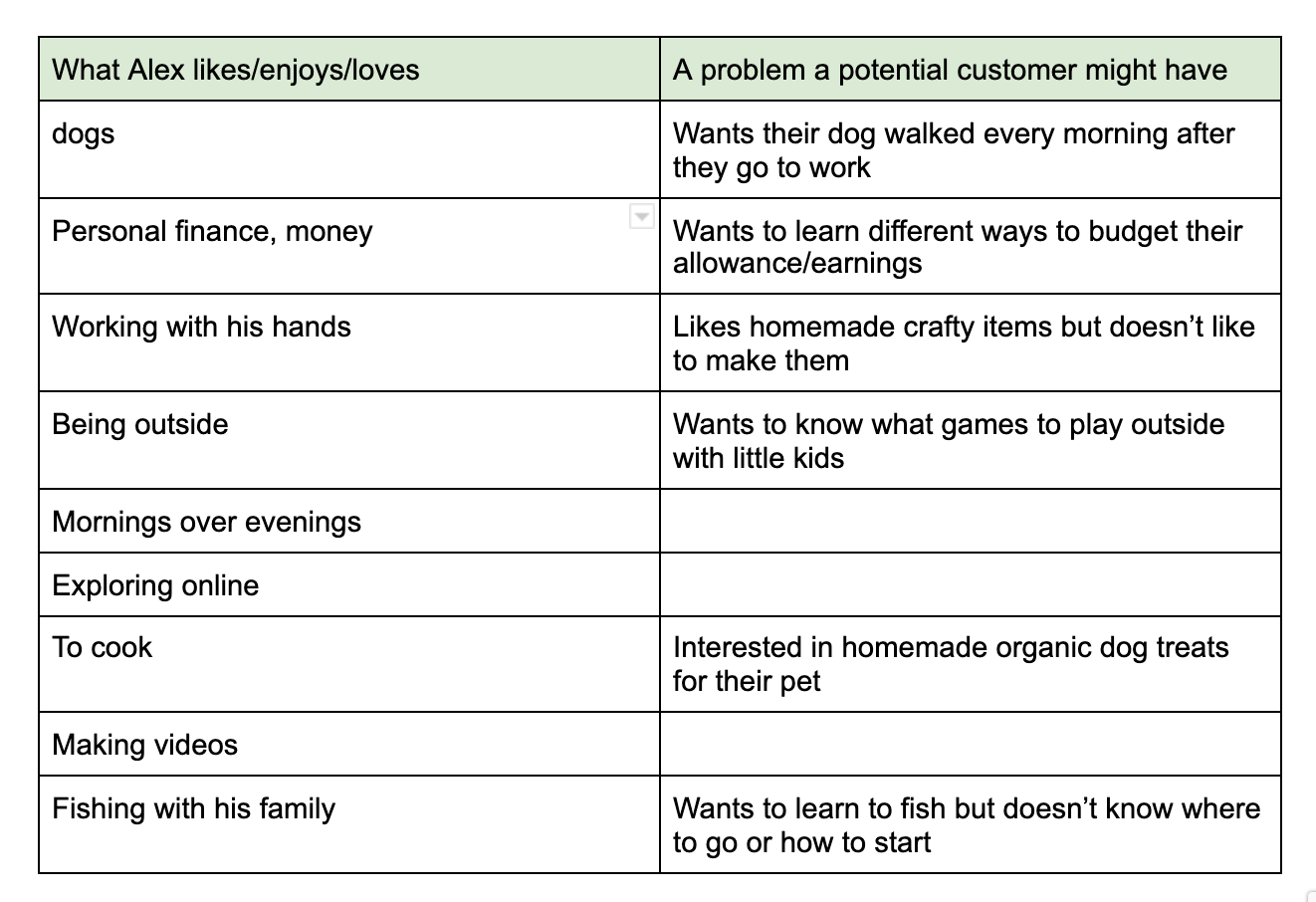How Do I Decide What Business To Start?
The short answer: your idea will help someone else solve a problem. Now, a problem can be interpreted in many different ways. In my cookie business, I was solving the problem of high prices for school-supplied cookies. Someone who provides dog walking services for guests of a local hotel are solving someone’s problem of their dog needing to get out but also adding convenience by bringing the service to them.Artists may provide their art more conveniently by offering free shipping. Someone refurbishing older furniture pieces may offer unique, quality pieces in colors specifically chosen by the buyer. Someone offering website building skills may offer free consultation to ensure a client feels secure about proceeding, solving the problem of someone’s fear of risk. Once you understand the concept of solving someone’s problem, list out your own interests and passions. For example, “Alex” may love dogs, enjoy personal finance, like working with their hands, enjoy being outside, prefer mornings over evenings, like exploring online, like to cook, finds making videos fun, and enjoys going fishing with their family.Then ask yourself, what problems might someone else have related to these things?

Connecting your passions and interests with other people’s problems can help anyone identify a potential business to explore.